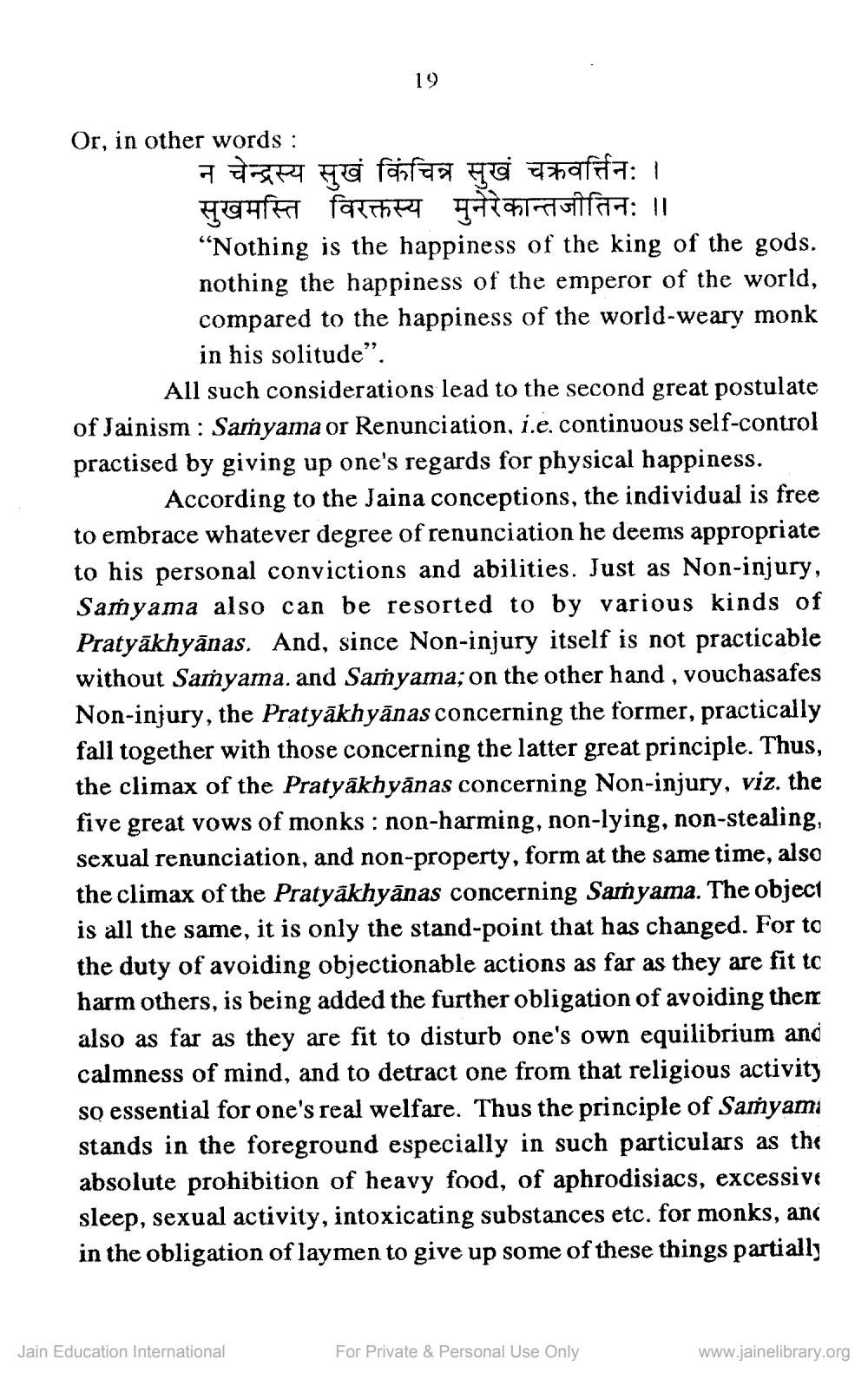________________
19
Or, in other words :
न चेन्द्रस्य सुखं किंचिन्न सुखं चक्रवर्तिनः । सुखमस्ति विरक्तस्य मुनेरेकान्तजीतिनः ।। “Nothing is the happiness of the king of the gods. nothing the happiness of the emperor of the world, compared to the happiness of the world-weary monk
in his solitude”.
All such considerations lead to the second great postulate of Jainism : Samyama or Renunciation, i.e. continuous self-control practised by giving up one's regards for physical happiness.
According to the Jaina conceptions, the individual is free to embrace whatever degree of renunciation he deems appropriate to his personal convictions and abilities. Just as Non-injury, Samyama also can be resorted to by various kinds of Pratyākhyānas. And, since Non-injury itself is not practicable without Samyama. and Samyama; on the other hand , vouchasafes Non-injury, the Pratyākhyānas concerning the former, practically fall together with those concerning the latter great principle. Thus, the climax of the Pratyakhyānas concerning Non-injury, viz. the five great vows of monks : non-harming, non-lying, non-stealing, sexual renunciation, and non-property, form at the same time, also the climax of the Pratyākhyānas concerning Samyama. The object is all the same, it is only the stand-point that has changed. For to the duty of avoiding objectionable actions as far as they are fit to harm others, is being added the further obligation of avoiding them. also as far as they are fit to disturb one's own equilibrium and calmness of mind, and to detract one from that religious activity so essential for one's real welfare. Thus the principle of Samyamı stands in the foreground especially in such particulars as the absolute prohibition of heavy food, of aphrodisiacs, excessive sleep, sexual activity, intoxicating substances etc. for monks, and in the obligation of laymen to give up some of these things partially
Jain Education International
For Private & Personal Use Only
www.jainelibrary.org




